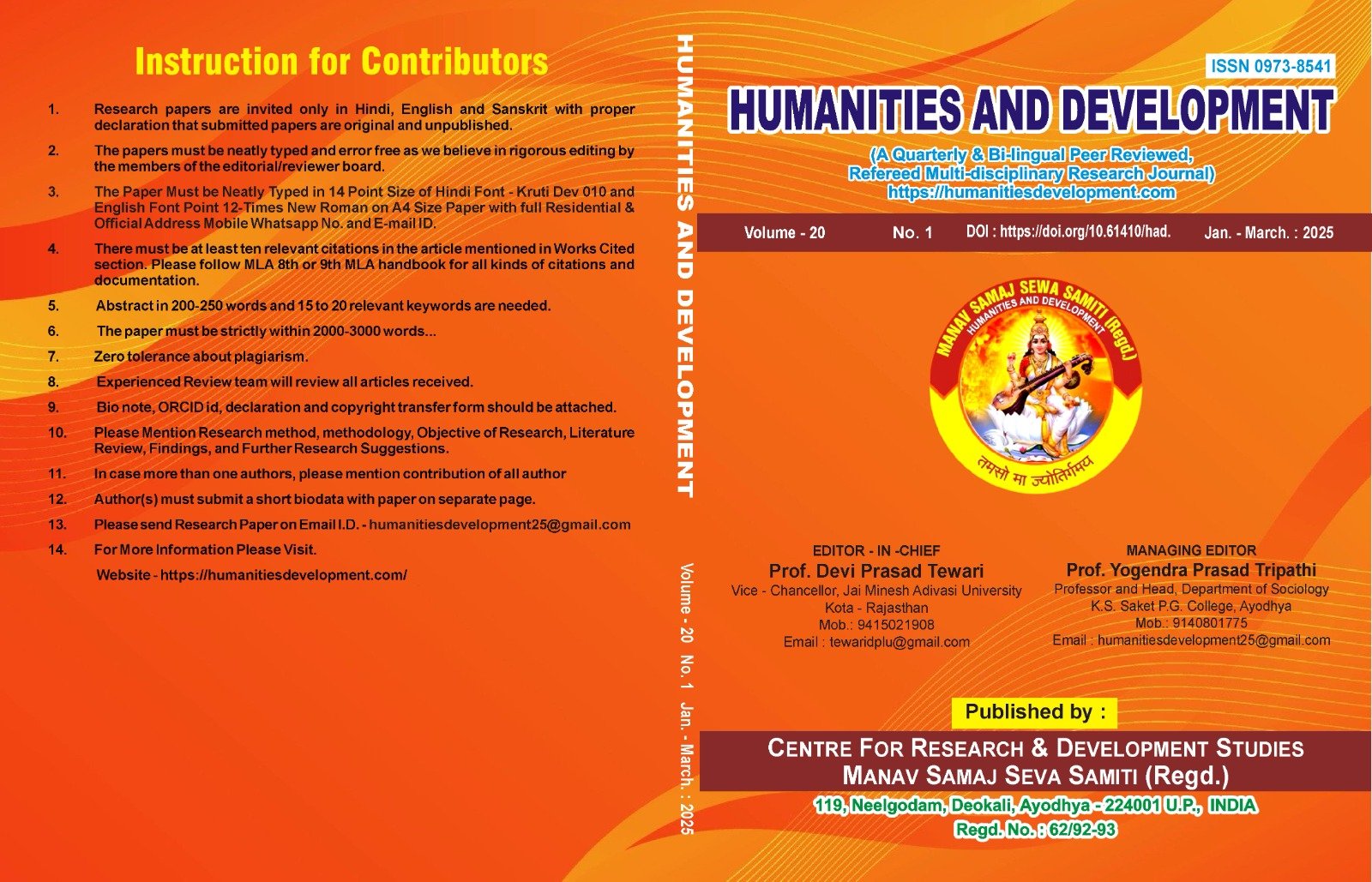Reclaiming Nature and Womanhood in Thomas Hardy’s Tess of the D’ Urbervilles: An Ecofeminist Perspective
Abstract
alternatively called Ecological feminism, is that branch of Feminism which
examines the interconnectedness between women and nature. Its name was coined by French
feminist Françoise d’Eaubonne in 1974. This branch of Feminism focuses on how both nature
and women are treated by the patriarchal lens or male-centred society. Ecofeminists examine
the effect of gender biases to demonstrate how social norms cast unjust dominance and
exploitation over women and nature. Ecofeminism also insists that these norms lead to an
incomplete, misleading and unjust view of the world. Therefore, its practitioners advocate a
reverse worldview that values the earth as sacred, recognizes humanity’s dependency on the
natural world, and embraces all life as precious.
Ecofeminism is a newly found term in the field of literary criticism that insists on the notion
that both women and nature are exploited by the patriarchal society and it disenfranchises the
sole ownership of male authority. There were several writers before Francoise d’Eaubonne,
who had discussed this concept without giving it a proper name ‘Ecofeminism’. Among these
writers, one of the universally acknowledged and highly controversial novelists, poets and
social commentators of the Victorian era, Thomas Hardy, has the mastery in creating rural
characters and depicting country life. Most of his novels project him as a keen observer of the
great chord once found between nature and human beings. Thomas Hardy in his novels is
concerned with such kind of ecofeminism, for his female characters are the victims of the
physical nature. This research paper focuses on the facts that are responsible for the
subjugation and exploitation of females in connection with nature in Thomas Hardy’s Tess of
the D’Urbervilles. Hence it provides a perspective for exploitation of body and place. Such a
relationship between women and the environment is a pivotal issue in Hardy’s novels.


